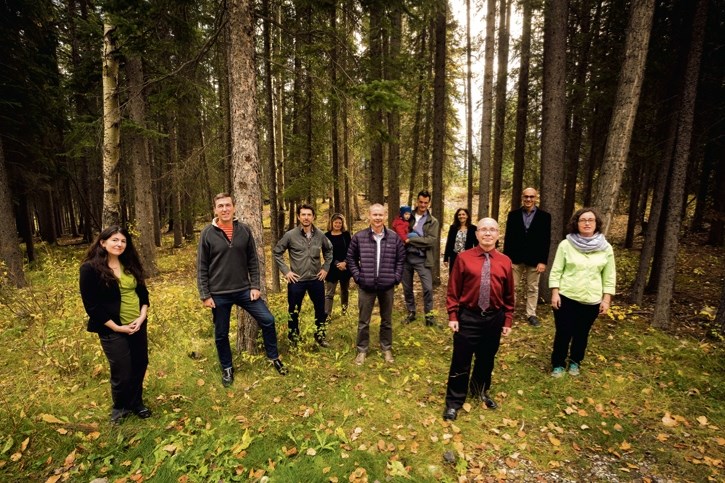Several Canadian environmental groups are calling on the federal government to put nature and wildlife first and foremost over commercial development in the mountain national parks.
Executive directors of the 12 groups, who were in Banff this week for a retreat to brainstorm solutions to key environmental challenges facing Canada, issued a joint statement Tuesday (Oct. 4) about their concerns over Parks Canada’s management of national parks.
The environmental groups called on Parks Canada to say no to a major expansion at the Lake Louise ski hill in Banff National Park and reject a proposal for commercial tent cabins at Jasper’s Maligne Lake.
“There is an urgent need for Parks Canada to refocus on nature conservation and stewardship, and to reverse the relentless focus on marketing, tourism and increasing visitation with little regard to the impacts on nature,” they wrote.
The groups include Équiterre, Ecojustice, Pembina Institute, Greenpeace, CPAWS, David Suzuki Foundation, Sierra Club of Canada, Ecology Action Centre, West Coast Environmental Law, Environmental Defence, Nature Canada and Wildlife Conservation Society Canada.
The conservation groups want to see a re-focus on protecting ecological integrity in national parks as the overarching management priority, including re-investing in science, ecological monitoring and public reporting.
It’s also imperative the government restore open, transparent decision-making and public accountability processes in national park management, they argue.
“There is an urgent need to scale up efforts to protect the ecological integrity of our national parks to fulfill the legislative mandate of maintaining or restoring their ecological integrity as a first management priority,” according to the joint statement.
“Yet, since 2012, Parks Canada’s conservation capacity has been cut by almost one-third, public consultations have been dramatically curtailed and development proposals have been allowed to go ahead within parks, even though they contravene policies specifically designed to limit development and protect precious wildlife habitat.”
The groups say none of this means keeping people out of parks.
“We recognize the critical role national parks play in providing opportunities for people to experience and learn about nature,” they wrote in the joint statement. “However, it is critical that the collective impact of infrastructure and people enjoying our parks does not jeopardize the very wildlife and wilderness they are meant to protect.”
Parks Canada declined an interview request, instead emailing a statement.
Officials say the federal agency takes its mandate to maintain ecological integrity very seriously, noting Canada is the world’s only national parks system that has fully implemented a system-wide ecological integrity monitoring and reporting program, consisting of 565 independent scientific measures that inform park-specific priorities and guide investments in conservation.
Natalie Fay, Parks Canada’s media chief in Ottawa, said strict development limits are in place to protect the ecological integrity of national parks.
“Parks Canada remains committed to a rigorous development review and environmental assessment process that ensures all development proposals comply with these limits and that a park’s ecological integrity is maintained or restored,” she said.
Fay said development in national parks is managed through consultation with the public, stakeholders and Indigenous communities, and planning that is informed by science.
“For example, Banff and Jasper national parks welcomed over six million visitors combined last year, yet over 96 per cent and 97 per cent of these parks respectively are declared wilderness areas with strong limits on development and use.”
This fall, Environment and Climate Change Minister Catherine will host a minister’s round table.
“This will be an opportunity to engage with the Minister and Parks Canada officials on a variety of topics and discuss issues that matter to Canadians,” Fay said.




